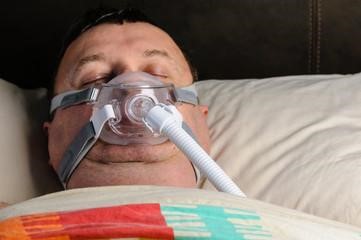Table of Contents
Combating Sleep Apnea with Exercise
 The continuous waking up, the snoring, lethargy, and feeling tired during the day despite getting a full night’s sleep, headaches, and the complaints from your spouse about you keeping them up all night – sound familiar? These are just a few of the indications of sleep apnea.
The continuous waking up, the snoring, lethargy, and feeling tired during the day despite getting a full night’s sleep, headaches, and the complaints from your spouse about you keeping them up all night – sound familiar? These are just a few of the indications of sleep apnea.
CPAP devices help with these symptoms to be sure, but what about other choices for sleep apnea treatment? There are options; one specific does not require a prescription or special equipment and can be done right at home. Moreover, it carries a lot of additional benefits as well. It is exercise.
It may seem difficult to believe, but by basically exercising, you can drastically impact your sleep and help to enhance your sleep apnea symptoms.
There are two forms of exercises we will discuss in this blog post, which help alleviate symptoms. Aerobic or resistance training and oropharyngeal exercises.
Note: These exercises are not mutually exclusive, which means that they can be done without interfering with each other.
Sleep Apnea Exercises
 The first form of sleep apnea exercise is actually physical exercise – aerobic/resistance training. Sleep apnea is often directly linked to obesity, and while it is far from the only cause of the condition, it is a key contributor.
The first form of sleep apnea exercise is actually physical exercise – aerobic/resistance training. Sleep apnea is often directly linked to obesity, and while it is far from the only cause of the condition, it is a key contributor.
According to the American Sleep Apnea Association, “being overweight is a high-risk factor for developing obstructive sleep apnea.” This being the case, physical exercises like running, biking, swimming, jumping rope, weight training, and other movements to help lose excess weight can be effective in helping sleep apnea symptoms.
Studies back this, according to a study titled, “The Role of Physical Exercise in Obstructive Sleep Apnea” published in the U.S. National Library of Medicine, “people involved in a frequent, predominantly aerobic, exercise program have shown a decrease in disease severity and daytime sleepiness, as well as an increase in sleep efficiency and peak oxygen consumption irrespective of weight loss.” The findings of the study proved to be statistically meaningful.
Possibly you do not feel that you have time to run or bike or to workout; perhaps, you feel self-conscious about going to the gym and being around other people. If that is the case, then the second form of sleep apnea exercises, oropharyngeal, may just be for you. Oropharyngeal refers to explicit activities you can do using your tongue, throat, and palate. The good news, you can do these exercises anytime, anywhere, and it is more than probable that no one will ever know you are doing them!





 Shop
Shop



